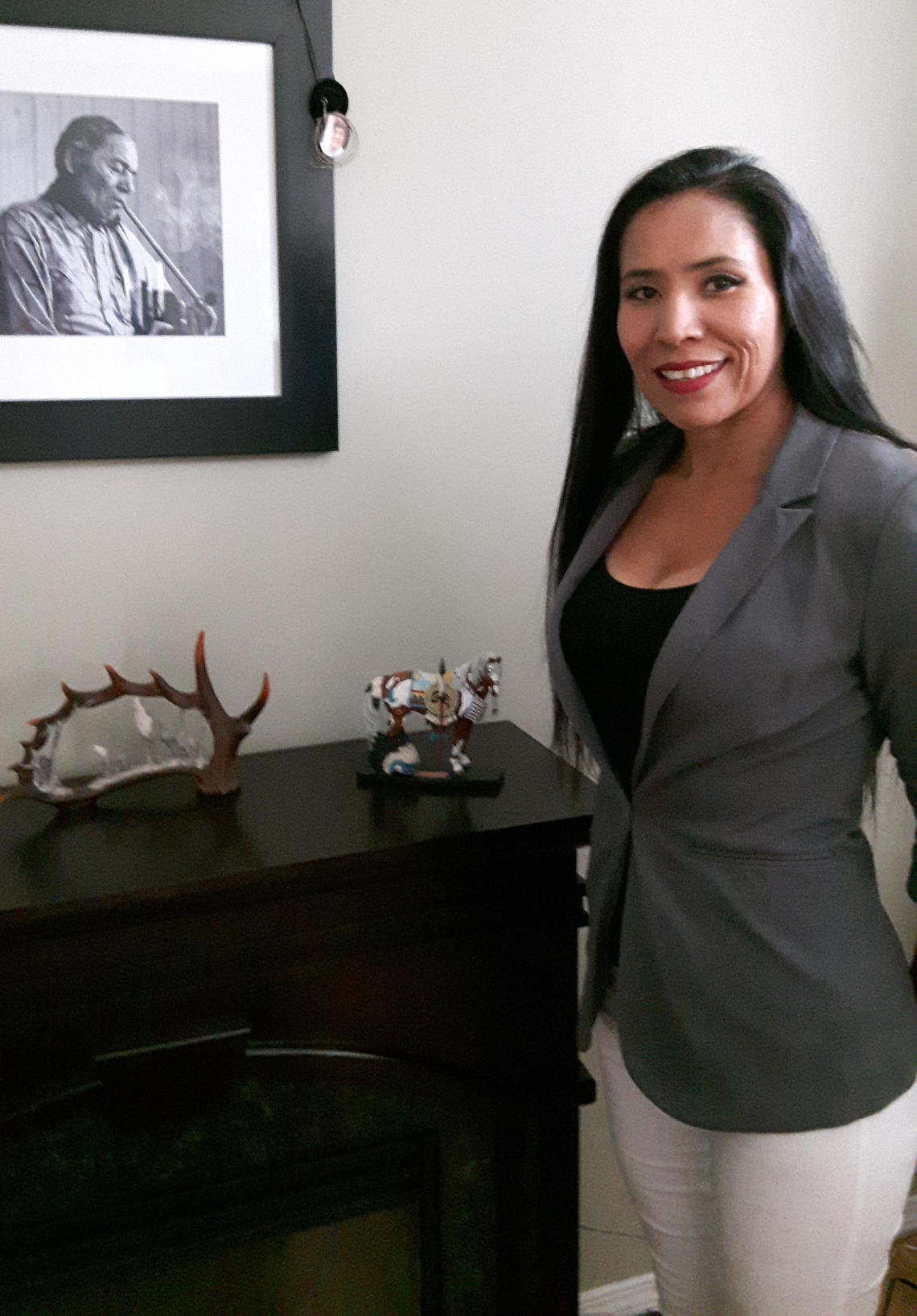
PhD candidate Gabrielle Lindstrom shares her thoughts on Indigenizing post-secondary curriculum.
Gabrielle Lindstrom
Jan. 11, 2018
Being both a Blackfoot woman who grew up in a reserve community as well as a post-secondary educator, I live Indigenous perspectives and teach them from a place of experience. As one of the research assistants working on the consultation component of the university’s Indigenous Strategy, I realized that incorporating Indigenous perspectives into post-secondary curriculum is an important priority for many people — a process commonly referred to as Indigenizing the curriculum.
Rethinking the process
In my experience, instructing pre-service teachers on how to incorporate Indigenous perspectives into K-12 curriculum, I also realized that many non-Indigenous people understand this endeavour as a systematic process that involves meeting certain outcomes that are exclusive to an Indigenous pedagogy. This approach to learning about Indigenous perspectives emphasizes differences between Indigenous and non-Indigenous cultures that can lead to immediate disconnect and challenge.
Taking power out of the classroom
Indigenous pedagogy, which refers to a way of teaching using Indigenous educational principles, is grounded in creating, fostering and sustaining good relationships between student and teacher. Teaching moments are found in the human-to-human interactions which are reciprocal — my students understand that I have certain knowledge and experience they can learn from and I understand that I, too, can learn from my students.
I use strategies such as circle dialogue, where we arrange ourselves in a circle and all share our perspectives on specific issues, establishing ethical spaces for respectful engagement that foster humility in learning, critical reflection and transparency in assessment. The goal is to remove the power imbalance in classrooms so students can not only open their minds to other ways of knowing and being in the world, but also learn that their own experiences are a source of deep knowledge. When we remove power from the classroom, learning becomes transformational and life-changing.
Indigenous pedagogy is more a way of being with learners as opposed to specific classroom outcomes that could be met through specific learning activities and standardized assessment practices. It is the spirit of learning that encapsulates human experiences which is grounded in reciprocity and encompasses a web of relationships through which every aspect of life becomes a teaching moment.

PhD candidate Gabrielle Lindstrom shares her thoughts on Indigenizing post-secondary curriculum.
Gabrielle Lindstrom
Building relational principles
Too many people think that Indigenizing curriculum will compromise certain markers of excellence and lead students down learning pathways that do little to prepare them for the demands of today’s world. What is often overlooked is that Indigenous perspectives in the classroom are much more than teaching specific content related to treaty-making and Indian Residential Schools. Although this content is part of it, Indigenizing curriculum is also about developing a pedagogy founded on relational principles of respect, compassion, humility, reciprocity and kindness.
Rather than compromising excellence, Indigenous epistemology, therefore, offers students the opportunity to strive for their full potential without compromising their human dignity or those of other cultures. Indigenizing the curriculum involves giving credit to traditional Indigenous ways of teaching and learning by providing the necessary history and context of this knowledge.
Honouring the learning spirit
For the university, Indigenous ways of understanding the world around us constitute a pedagogy of inclusiveness through which we can begin to realize that life offers an infinite array of teaching moments which are contextualized in relationship to self, others and the natural world. The potential for growth is found in our shared humanity and Indigenous pedagogy offers us a way to honour the learning spirit.
ii’ taa’poh’to’p, the University of Calgary’s Indigenous Strategy, is a commitment to deep evolutionary transformation by reimagining ways of knowing, doing, connecting and being. Walking parallel paths together, ‘in a good way,’ UCalgary will move towards genuine reconciliation and Indigenization.